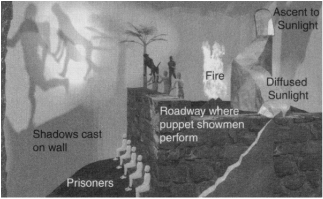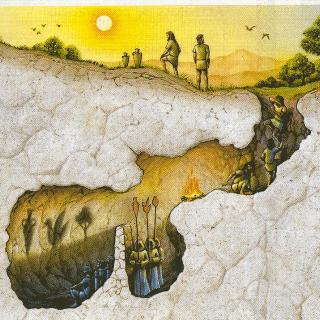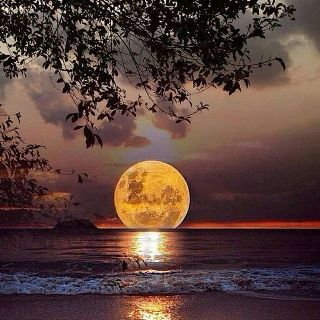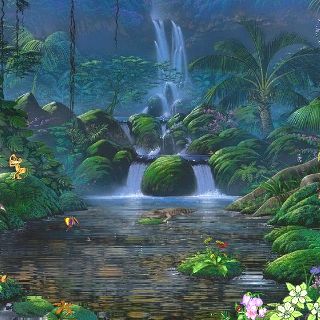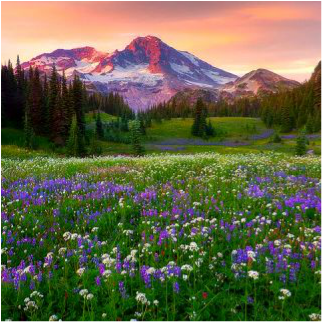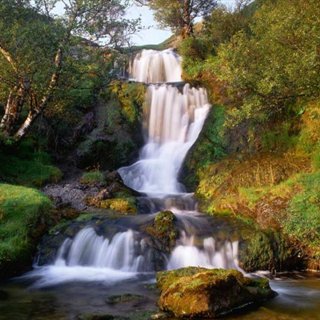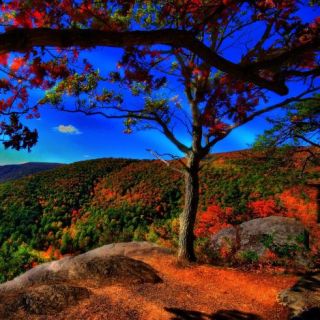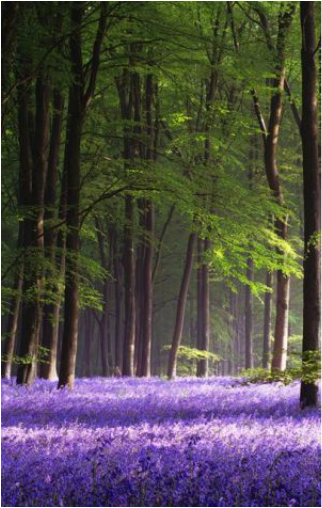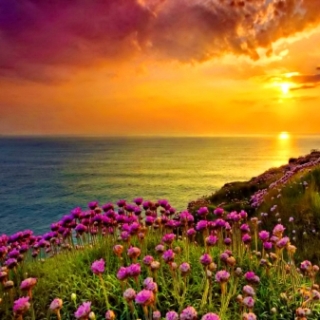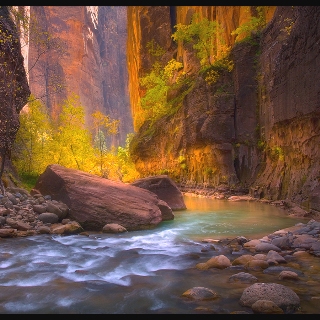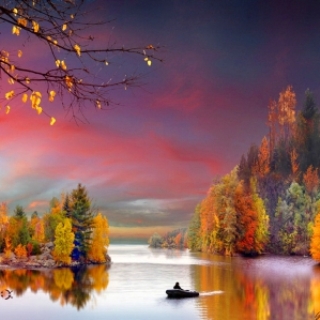Plato's Cave
“I wish I could give a description of at least the smallest part of what I learned, but, when I try to discover a way of doing so, I find it impossible; for, while the light we see here and that other Light are both light, there is no comparison between the two and the brightness of the sun seems quite dull if compared with the other. In short, however skillful the imagination may be, it will not succeed in picturing or describing what that Light is like.” ~ Saint Teresa of Avila The “Allegory of the Cave” appears in Book Seven of the Republic, written by the Greek philosopher Plato around 360BC. It is based on a dialogue that Plato’s teacher, Socrates, is having with two students.
“It is the common experience of all the great seers, from Lao Tze to Socrates and Heraclitus, from Plotinus and al-Hallaj to Meister Eckhart and St. John of the Cross. All were cruelly tortured and persecuted for their goodness and wisdom. Jesus too found the world of men wanting in understanding.” ~ Swami Abhayananda “In the world of physics we watch a shadowgraph performance of the drama of familiar life. The shadow of my elbow rests on the shadow table as the shadow ink flows over the shadow paper. It is all symbolic, and as a symbol the physicist leaves it. ... The frank realization that physical science is concerned with a world of shadows is one of the most significant of recent advances.” ~ Sir Arthur Stanley Eddington (highly regarded British astronomer, physicist, and mathematician, 1882 – 1944) “The outstanding achievement of twentieth century physics is not the theory of relativity with its welding together of space and time, or the theory of quanta with its present apparent negation of the laws of causation, or the dissection of the atom with the resultant discovery that things are not what they seem; it is the general recognition that we are not yet in contact with the ultimate reality. We are still imprisoned in our cave, with our backs to the light, and can only watch the shadows on the wall.” ~ Sir James Jeans (highly regarded British physicist, astronomer, and mathematician, 1877 – 1946) “… Themselves but shadows of a shadow-world.” ~ Alfred, Lord Tennyson This sub-section concludes with a stunning poem written by modern day mystic Swami Abhayananda who has experienced first-hand the role of the “freed man” from Plato’s Cave.
Plato’s Cave by Swami Abhayananda (2014) I lay in chains like all the rest, but even in my youth I sought a way beyond this gloomy labyrinthine cave. I’d heard the legends of a land of light, and one day Broke my chains and began my search, exploring paths Both dark and narrow where very few had gone before. Alone, I felt my way through winding passageways, Leading always upwards toward a dim but beckoning light; And at last broke free, all unexpectedly bathed in light. For suddenly, as though lifted on a wind divine, I was elevated to a heavenly plane Where I was not the man I’d been before. The life I’d known beneath the surface, Where only darkness reigned, was but a distant memory; As now I beheld a glorious radiance of white engulfing me And into which I blent. No flickering fires, no shadowed walls, nor separate Dancing figures differentiated here; for all was One free vastness irradiated from above And bright with clarity so intense I saw for miles An endless horizon spreading everywhere at once. In breathless awe I took it in, marveling at the breadth And scope of this unexpected land to which I’d come, And breathed the light-filled air so sweet and pure. There, the very earth was mine and all the starry heavens; And I was at the center, still, containing all. I had become the one great light, Begetting and illuminating every thing and beast; There was no other to behold, as all combined in me. And all was perfect everywhere, Moving toward its perfect end. No trace of self remained, but only this one eternal Beauty I beheld shining endlessly in all. How expansive was the freedom that I felt! How flawless my delight! I saw with intimate clarity Eternity’s joy-filled peace, And witnessed the breath-like ebb and flow Of cosmic birth and death. For, somehow, I was made to see that all revolved in me; That I was part and whole, and yet was much, much more: The still, unchanging eye unbound by time That watched while time unfurled its transient array. How long I stood there I cannot know; Lost in vision’s trance, I clung with all my power To the tenuous gift of sight. But thoughts rushed back to pull me down, And I descended from the whiteness into dark once more. My mind descended once again to self and those I’d left Still struggling in the darkened cave, Still unimagining what bright place lay just above. I vowed to tell them all what place I’d found and how They too might rise above their dungeon-life below. That such a place existed was still unknown to all; That life held so much more of joy and light And endless vision none had dared to dream. And soon I found myself returned to the world I’d known, Below, unlit, where only artificial shadows produced the show. And yet, sustained within my mind was what I’d seen above; And it was this which fired my blood And brought to these familiar scenes illumination From my memory’s so newly acquired delight. And as I went among the dreary folk, My eyes still brightened by the light I’d found, I told them of my discovered land, and of the brightness there, And how I’d made my way by following the upward trail. But none believed me. I was an embarrassment To friends and family who thought I’d lost my mind. “That’s very interesting”, they said; “And now it’s time for lunch”. While others said, “Everyone has their own ideas, you know; I have my own beliefs as well.” And so I learned to keep my knowledge to myself, and spend My quiet hours alone, remembering where I’d been. And even now, my heart is drawn there still! My eyes, still filled with vision of the light I’d seen, Were unaccustomed now to dark; And though I tried to focus on the customary tasks Incumbent on the dwellers here below, I could not wholly give myself to thoughts And purposes of men enslaved, Nor take delight in shadows playing on the walls. My briefly tasted freedom rendered me unfit For chains and games that others loved; My heart was up above. And so they ask, “What benefit did you derive from your escape? You journeyed there, or so you say, And what have you gained but blindness and disdain For what all men hold dear?” I have no answer to these taunts. I only know that I have gone Where I was meant to go, and saw a world More real, more glorious than this shadowed one below. I’ve known the joyful promise which my soul desired; I reached the goal, the source of joy and light. And, though I’m here among the rest, I stand there still, Immersed in light, delighting in the far-flung landscape that I saw. For in my heart my home is there; I’ll live there evermore. |


